Filter by

The Self-Organizing Social Mind
"A Bradford book."In this work, John Bolender proposes a new explanation for the forms of social relations. He argues that the core of social-relational cognition exhibits beauty - in the physicist's sense of the word, associated with symmetry.OCLC-licensed vendor bibliographic record.
- Edition
- -
- ISBN/ISSN
- 9780262289238
- Collation
- 1 online resource (xiv, 190 pages) :illustrations
- Series Title
- -
- Call Number
- -
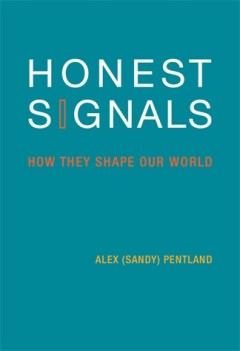
Honest Signals: How They Shape Our World
"A Bradford book."How understanding the signaling within social networks can change the way we make decisions, work with others, and manage organizations.How can you know when someone is bluffing? Paying attention? Genuinely interested? The answer, writes Alex Pentland in Honest Signals, is that subtle patterns in how we interact with other people reveal our attitudes toward them. These unconsc…
- Edition
- -
- ISBN/ISSN
- 9780262281393
- Collation
- 1 online resource (xvii, 184 pages)
- Series Title
- -
- Call Number
- -
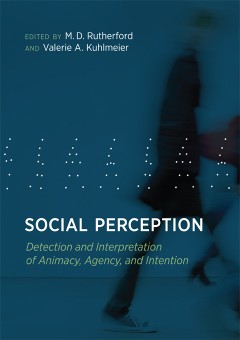
Social perception :detection and interpretation of animacy, agency, and inten…
Rutherford and Kuhlmeier present current research in the interdisciplinary field of social perception, including the perception of biological motion, the perception of animacy, attributions of intentionality, and the development of these psychological processes.OCLC-licensed vendor bibliographic record.
- Edition
- -
- ISBN/ISSN
- 9781461943280
- Collation
- 1 online resource (vi, 415 pages)
- Series Title
- -
- Call Number
- -
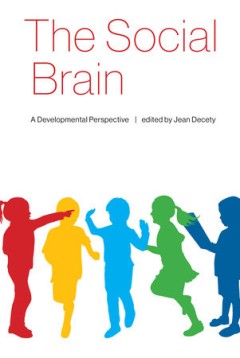
The social brain :a developmental perspective
"This new volume brings together a range of empirical and theoretical views from both developmental psychology and developmental neuroscience, and cover a core set of questions and topics that concern the development of the social mind. The basic topics about the origins, development, and biological bases of the human social mind include, but are not limited to, face and voice recognition, atta…
- Edition
- -
- ISBN/ISSN
- 0262358964
- Collation
- 1 online resource (xii, 426 pages) :illustrations (black and white).
- Series Title
- -
- Call Number
- -
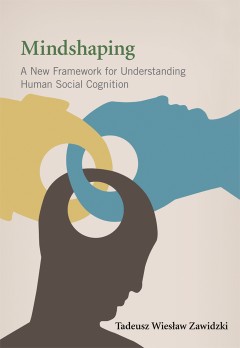
Mindshaping: A new framework for understanding human social cognition
"In this novel account of distinctively human social cognition, Tadeusz Zawidzki argues that the key distinction between human and nonhuman social cognition consists in our complex, diverse, and flexible capacities to shape each other's minds in ways that make them easier to interpret. Zawidzki proposes that such "mindshaping"--Which takes the form of capacities and practices such as sophistica…
- Edition
- -
- ISBN/ISSN
- 9780262313278
- Collation
- 1 online resource (xxiii, 317 pages)
- Series Title
- -
- Call Number
- -
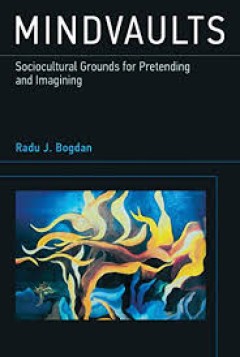
Mindvaults : sociocultural grounds for pretending and imagining
An argument that the uniquely human capacities of pretending and imagining develop in response to sociocultural and sociopolitical pressures in childhood.The human mind has the capacity to vault over the realm of current perception, motivation, emotion, and action, to leap--consciously and deliberately--to past or future, possible or impossible, abstract or concrete scenarios and situations. In…
- Edition
- -
- ISBN/ISSN
- 9780262314336
- Collation
- 1 online resource (xxi, 236 pages)
- Series Title
- -
- Call Number
- -

Social cognition :making sense of people
-- Neal Roese, Department of Psychology, Northwestern University.OCLC-licensed vendor bibliographic record.
- Edition
- -
- ISBN/ISSN
- 0585077827
- Collation
- 1 online resource (xi, 602 pages) :illustrations.
- Series Title
- -
- Call Number
- -
 Computer Science, Information & General Works
Computer Science, Information & General Works  Philosophy & Psychology
Philosophy & Psychology  Religion
Religion  Social Sciences
Social Sciences  Language
Language  Pure Science
Pure Science  Applied Sciences
Applied Sciences  Art & Recreation
Art & Recreation  Literature
Literature  History & Geography
History & Geography